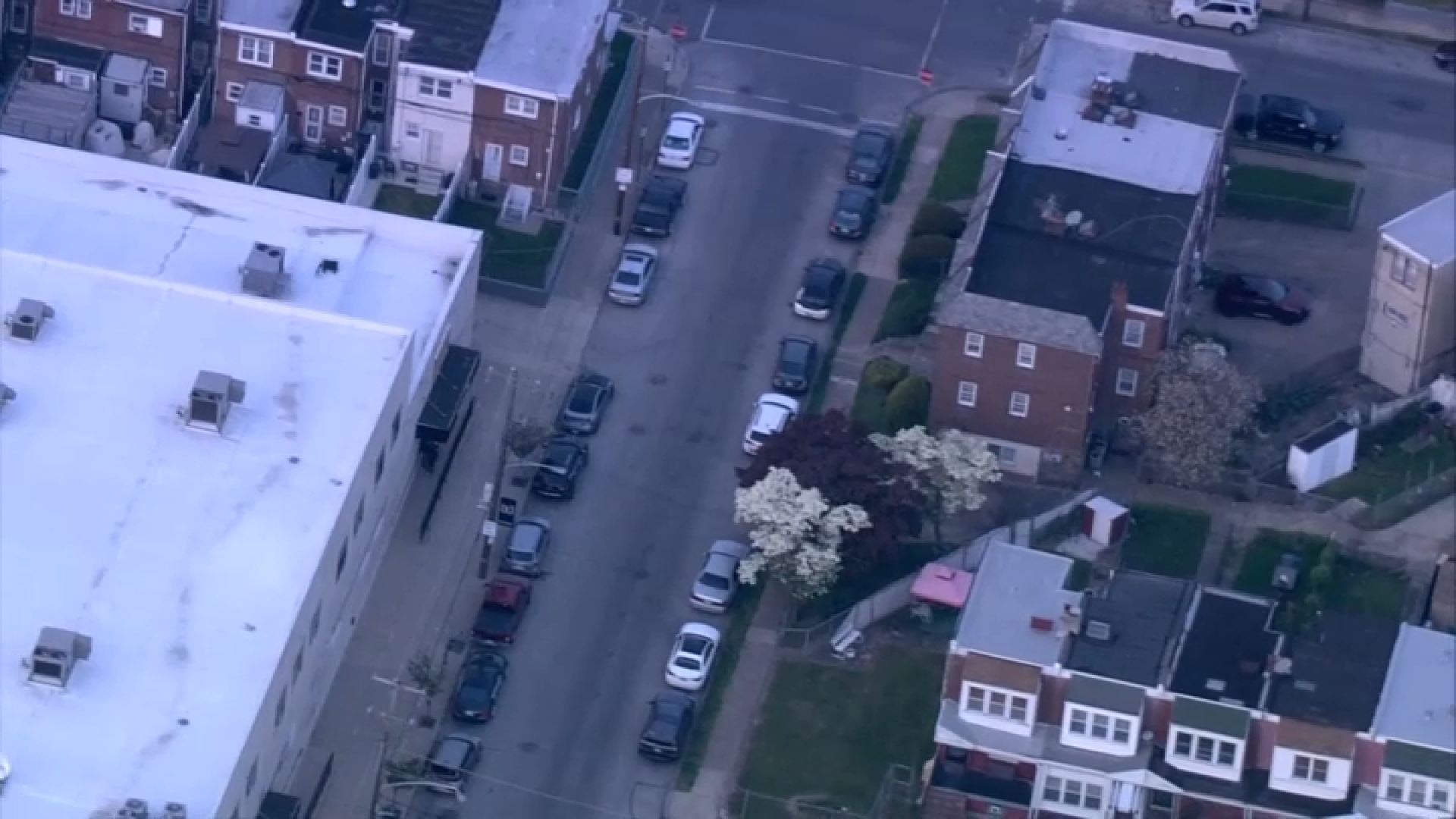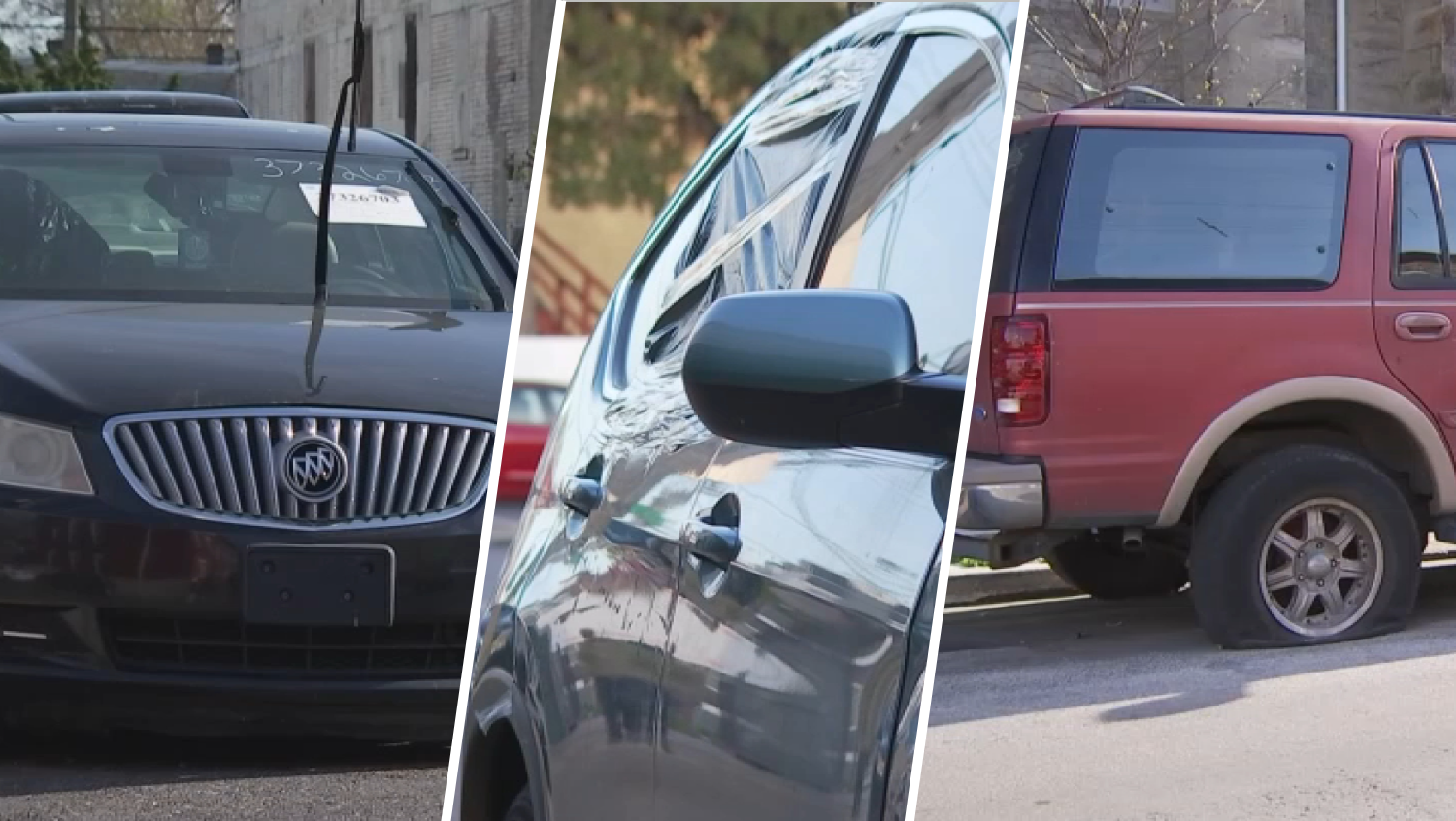Put it directly to "John. Q. Pennsylvania."
That's State Representative Dwight Evans' idea for escaping the political "loggerheads" seen over state education funding.
Here's the question Evans (D-Philadelphia) wants Pennsylvanians to consider in a non-binding statewide referendum:
In order to raise an additional $1 billion for public education annually, would voters approve of an increase to the state sales tax, personal income tax, business tax or a severance tax on revenue generated by Marcellus Shale drilling?
Any potential funds generated, Evans says, would be directed into a "lock-box" to be used solely for the purpose of public education. Existing state education funding appropriations, he says, would be "held harmless."
The non-binding referendum would not force lawmakers to act.
Evans says it's a way for voters to send a clear message to lawmakers, Gov. Tom Corbett and the candidates hoping to replace Corbett in this year's election.
Local
Breaking news and the stories that matter to your neighborhood.
"The governor gives his budget address on February 4th, and he will outline his proposal regarding the spending of state money," said Evans. "Where is the citizen view? We should put the education issue on the ballot and ask the people."
Evans draws inspiration from California voters. In Fall of 2012 they approved a measure that raises $6 billion for education annually by increasing sales and income taxes on the wealthy.
A similar initiative that would have raised an additional billion in annual education revenue failed in Colorado this past november.
Evans thinks it could succeed in Pennsylvania.
"I believe the people would vote for education," he said. "We will never get the kind of [job] growth we need unless we address the education issue."
Evans introduced a resolution in the Pennsylvania House of Representatives Tuesday calling for the referendum. He hopes to have the question on the ballot for the state's May 20th primary election.
In his 34 years as a member of the Pennsylvania House of Representatives, Evans has often found himself at the center of the debate over public education.
In the early 1990s, he steered the state to revamp its education funding formula.
In 1997, Evans successfully advocated for the passage of Pennsylvania's Charter School Law and subsequently opened West Oak Lane Charter School the following year.
In 1998, Evans was the chief architect of the state takeover legislation that stopped the threatened shutdown of the Philadelphia School District and later put the district in the hands of the School Reform Commission.
Last June, he wrote an op-ed lamenting the "Harrisburg Syndrome" as the "chronic and costly practice of refusing to invest responsibly in education."
"We can all sit around twiddling thumbs," said Evans. "So the question is — to any legislator, myself included–what exactly would I propose? I'm proposing the idea of the referendum on the basis of trying to build a political consensus."
Likelihood?
In some states, voters have the power to put initiatives on the ballot by gathering signatures.
Not so in Pennsylvania. In order for Evans' idea to go before the public, the legislature would have to approve the ballot question.
But what's the likelihood that a Republican-controlled legislature will allow a tax-hike-related question to go before voters?
Close to zero, says Terry Madonna, political science professor at Franklin and Marshall College.
"There's no way the Republican-controlled legislature is going to do that," said Madonna. "They're just not going to do that and they're obviously not going to do it in an election year."
The Pennsylvania legislature has rarely allowed the public to vote on referenda.
In 1989, during Robert Casey's tenure as governor, the legislature allowed for a public vote on Casey's plan to reduce the state's reliance on property taxes — a measure voters rejected three-to-one.
Throughout the 1990's politicians including Evans mounted efforts to put a referendum on the ballot that that would raise education funding by approving riverboat gambling and taxing the proceeds.
The House passed the measure, but Evans says it was "torpedoed" in the Senate by former State Sen. Vince Fumo. Voters never got the chance to cast their lot, and riverboat gaming never got the chance to drop anchor in the Delaware.
Even if Evans succeeds in gaining legislative approval for this referendum, Madonna remains skeptical that voters would accept any tax that affects a broad population.
"In spite of the fact that there's obvious support for increasing funding for education," he said, "the problem is that voters in our state have historically been loathe to adopt changes that occur within the tax structure that could lead to higher general taxes such as sales taxes, income taxes and business taxes."
Madonna's polling suggests that Pennsylvania voters would overwhelmingly support a tax increase on revenue generated by Marcellus Shale gas drilling. Currently, shale drilling is subject to a local impact fee in which the majority of funds stay with the counties and municipalities hosting wells.
Gov. Corbett has long opposed a severance tax on gas drilling that would raise more overall state revenue.
A June poll commissioned by Public Citizens for Children and Youth and the Pennsylvania Budget and Policy Center found that a majority of pollees were willing to take a sales or income tax hike to aid education funding.
"Giving the citizens of the state the ability to weigh in and push the legislature makes total sense to me," said PCCY executive director Donna Cooper, a former cabinet member in the Rendell administration. "We really need to radically change the terms of the conversation in Harrisburg."
Conflicting views
The State Department of Education did not return multiple requests for comment on this issue.
The office of State Sen. Vincent Hughes (D-Philadelphia) was enthusiastic about the idea, but said Hughes would have to see more specifics of Evans' plan before deciding which direction to vote.
"We expect that if something like that were put in front of the voters that it would be very successful," said Hughes spokesman Ben Waxman. "People are seeing the impact of these education cuts, not just in Philly, but in school districts all over the state."
House education committee chair Paul Clymer (R-Bucks County) said he would not support putting the referendum to voters partly because he doubts that the number of potential voters would adequately represent the interests of the entire state.
Clymer supports greater state funding for education, but believes the revenue must ultimately come from growth in the economy.
"We need to look at ways that we can make federal–and to some degree state–government more business friendly," Clymer said, "and then...we'll see the income for the state and counties increase."
Despite his critics, Evans believes that there are enough voters across the state who are frustrated with education funding that the referendum idea will gain a groundswell of support.
"It bubbles from the bottom up," Evans said. "That's how it works."



